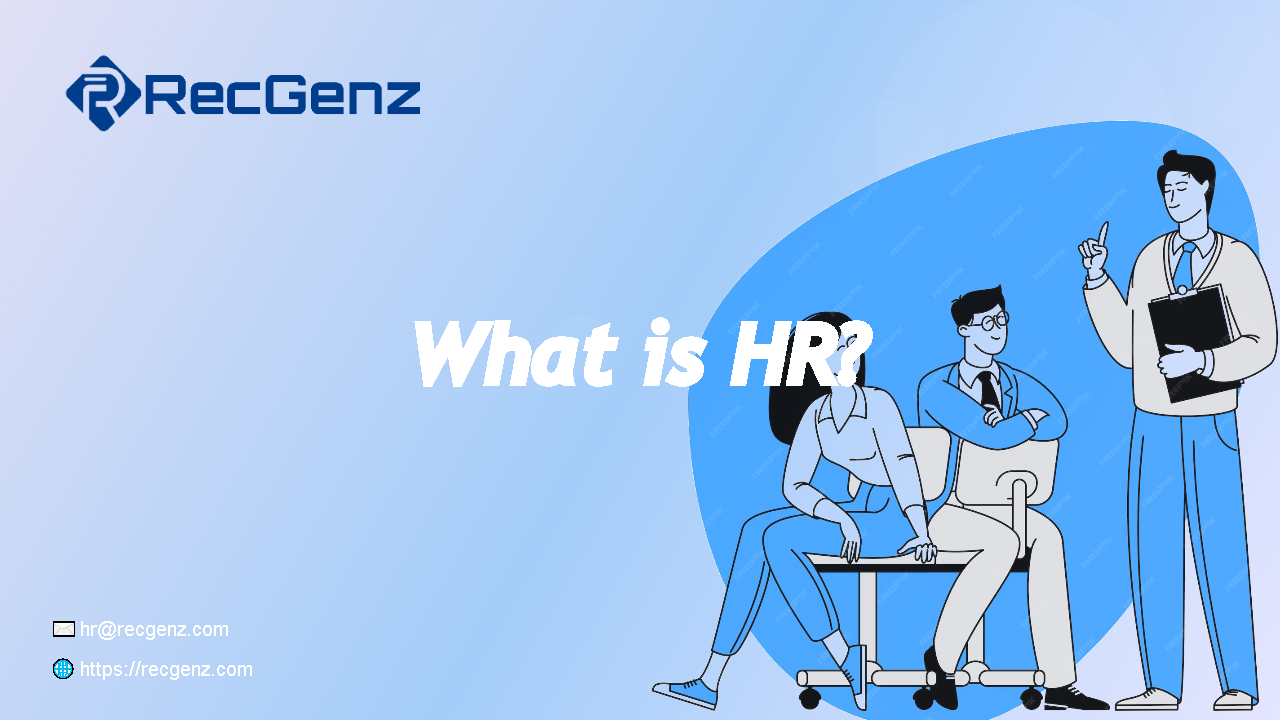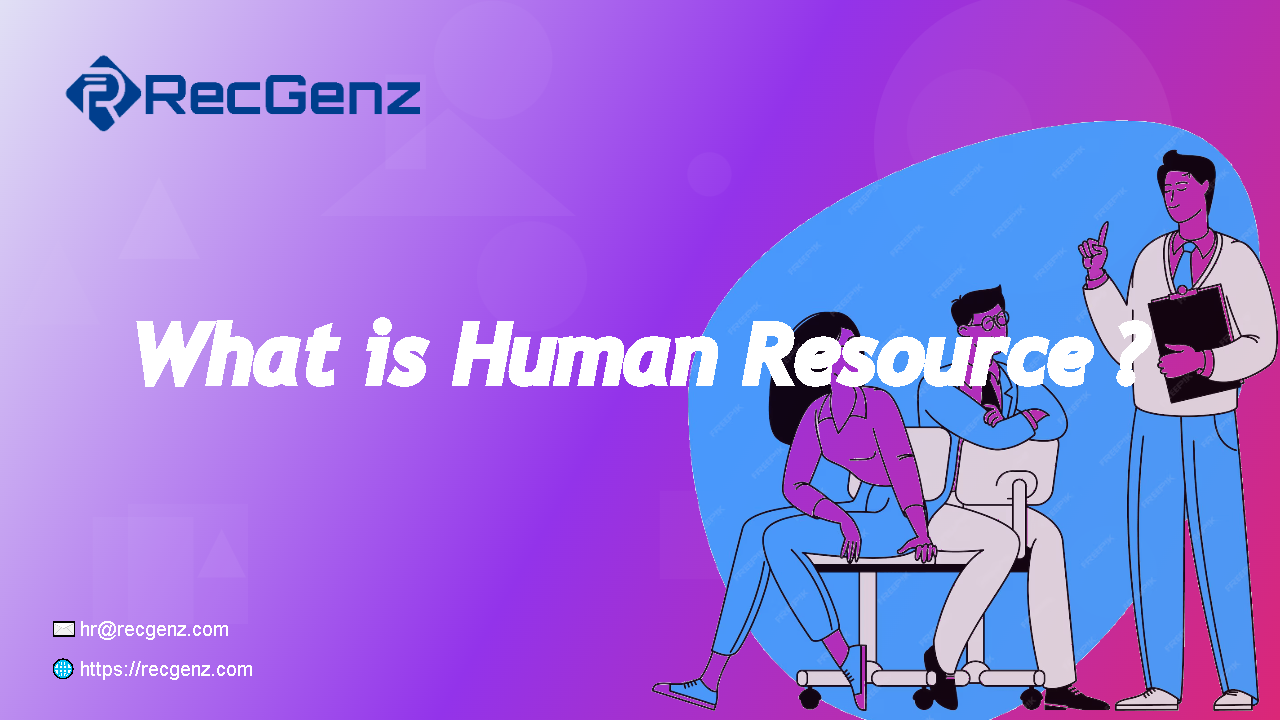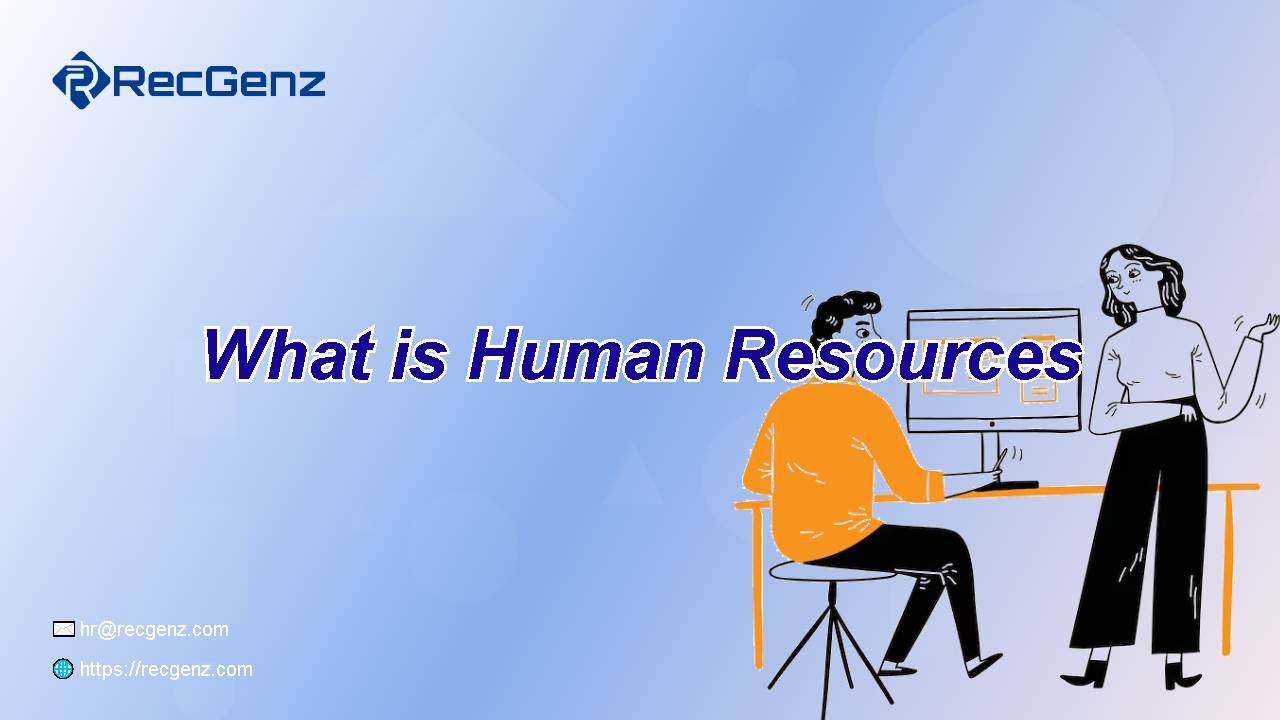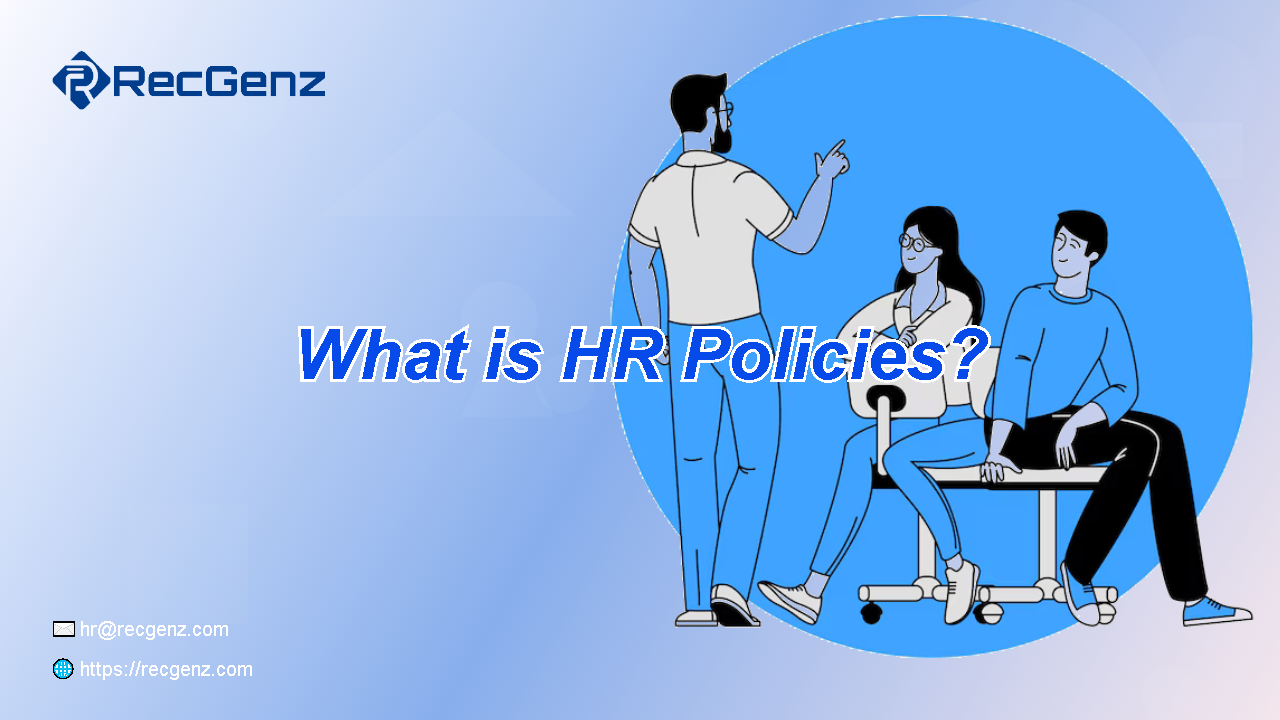What is Human Resource Management?
A complete overview of Human Resource Management (HRM) and its key processes.
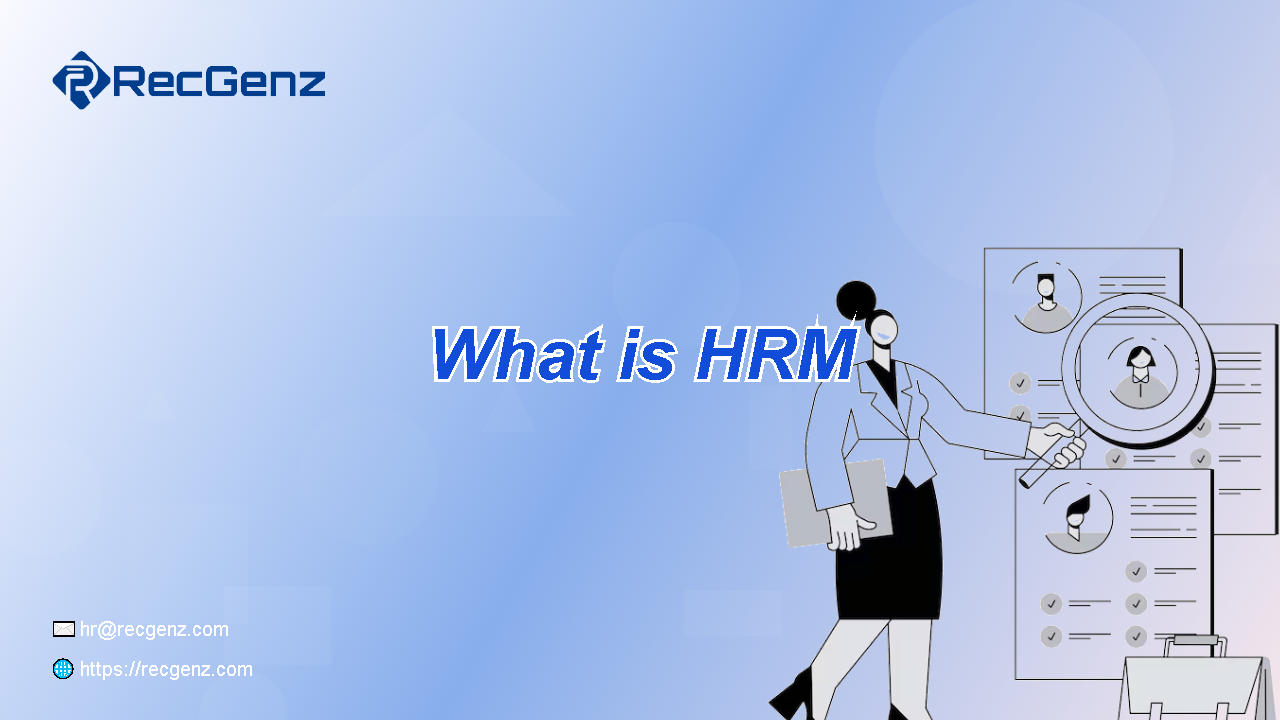
What is Human Resource Management (HRM)?
Human Resource Management (HRM) is the structured approach organizations use to manage, develop, and empower their people. Often referred to as the backbone of modern business, HRM encompasses the processes of recruitment, training, performance evaluation, employee engagement, and workplace culture management. Simply put — HRM ensures that the right people are in the right roles, growing in their careers, and contributing to long-term business success.
In today’s competitive environment, HRM has evolved from administrative tasks to a strategic partner that drives innovation, employee satisfaction, and organizational growth. Understanding HRM is essential for any company that wants to stay agile and people-focused.
Key Functions of Human Resource Management
1. Recruitment & Selection
HRM identifies talent gaps, designs hiring strategies, and ensures that only the most qualified candidates join the organization. A robust recruitment process saves time, reduces turnover, and strengthens company culture.
2. Training & Development
To stay relevant, employees need continuous learning opportunities. HRM creates development programs, workshops, and leadership tracks that boost both individual performance and organizational capability.
3. Performance Management
Through regular feedback, appraisals, and goal setting, HRM ensures employees remain productive, motivated, and aligned with the company’s mission. Performance management connects effort with reward.
4. Employee Relations & Engagement
HRM fosters healthy communication between management and employees, resolves conflicts, and builds a positive work culture. Engaged employees are not only happier but also more loyal and productive.
5. Compensation & Benefits
From salaries to health benefits and perks, HRM ensures fair and competitive compensation structures that attract and retain top talent.
6. Compliance & Workplace Safety
HRM protects the organization by ensuring compliance with labor laws, health regulations, and ethical standards. It also promotes safe and inclusive work environments for all employees.
Why Human Resource Management is Critical
HRM is more than a support function — it is a business enabler. By aligning human capital with organizational goals, HRM ensures that strategy execution is efficient and sustainable. Companies with strong HRM practices enjoy higher employee retention, better performance, and stronger employer brands.
In fact, businesses that invest in HRM see measurable results in innovation, customer satisfaction, and profitability. In the modern era, HRM is no longer optional — it is essential for long-term success.
SEO Key Takeaways
- Human Resource Management (HRM) is the strategic approach to managing people in organizations.
- Core HRM functions include recruitment, training, performance management, and employee engagement.
- HRM plays a vital role in compliance, workplace safety, and compensation planning.
- Effective HRM drives retention, productivity, culture, and long-term business growth.

